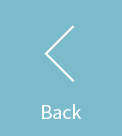A brief description of a basic Czech nymph pattern.
The Czech nymph is a general-purpose nymph. We fish it using the technique of „short nymph" (only about one and a half metre of the line from the rod). It imitates caseless caddis larvae, fresh-water shrimps etc. It is being tied in a lot of colour variants, more or less weighted. We usually put three Czech nymphs on the leader, the middle one is the largest and heaviest, the upper dropper is the lightest and smallest. We tie the flies in intervals of 30 - 50 cm. But it is not an absolute rule. This method is suitable for both shallow and deep currents and rapids. Most of the flyfishermen start fishing this way and when the fish are taking, there is no need to change the arrangement. In other situations we must experiment with size, placing and colour of the nymph.
A description of one of the possible colour variants follows:
Hook: scud hook No. 6 - 16
Weight: lead wire of various thickness, wound in various numbers of turns according to the requisite weight of the fly
Body: After tying in clear ribbing nylon 0,12 - 0,16, pink vinyl back and the lower gold holographic tinsel we tie in fine natural dubbing (opossum, musk-rat, rabbit, hare). All that we tie in successively, deep in the hook bend with a strong light tying thread, with that we have covered the whole shank together with the lead in tight turns. We start to dub with a very thin strand of hair e.g. of a beige rabbit to the lead weight. Then we wind turns of light pink dubbing over the weight and leave the thread hanging. Now we rib the body with tinsel, fasten it und cut off the rest. We put a small strand of bright red thin dubbing on the thread and create a so called heart. Than we proceed to the hook eye winding the tapering thorax using dark green coarse dubbing, e.g. from a seal.
Back: We stretch a pink vinyl stripe cut into a point at the rear, lay it on the upper side of the body and thorax and secure it at the eye.
Ribbing: We use about 7 turns of nylon for ribbing the whole fly to suggest segmentation and fix the back, so that it does not slide to one side.





















